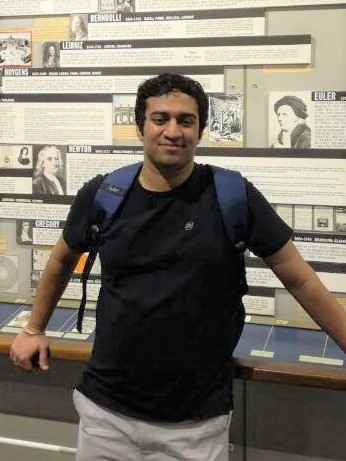Abhishek N. Kulkarni
 |
Postdoctoral Fellow,
|
About
I am a Postdoctoral Fellow at the Center for Autonomy at the University of Texas at Austin, working with Prof. Ufuk Topcu. I earned my Ph.D. in Electrical and Computer Engineering from the University of Florida, Gainesville, in 2023, under the guidance of Prof. Jie Fu. Prior to that, I completed an M.S. in Robotics Engineering at Worcester Polytechnic Institute, Worcester, in 2021, also under the mentorship of Prof. Jie Fu.
My research spans the interdisciplinary fields of computer science, control, and decision-making, with a strong emphasis on game theory, formal methods, motion planning, and multi-agent systems. Recently, my work has focused on advancing these foundations to address challenges in multi-agent systems and large-scale, LLM-driven games involving language-based negotiations.
I am deeply passionate about leveraging mathematical and computational rigor to tackle real-world problems, particularly in the domains of autonomy, robotics, and the security of cyber-physical systems.
Research
My currrent research employs formal methods and logic and game-theory to design trustworthy and cognitively realistic autonomous systems that enables them to exhibit human-like behaviors such as opportunism, deception, and preference-aware planning.
My current projects include:
Game-theoretic Synthesis of Deceptive Strategies: In a two-player adversarial interaction with asymmetric information, how can the player with superior information gain advantage over the opponent by employing deception?
Opportunistic Planning with Incomplete Preferences over Temporal Logic Objectives: Given an incomplete (i.e., partial) preference over a set of linear temporal logic (LTL) formulas expressing temporal goals for an agent, how to synthesize a strategy that achieves the most preferred goal while reasoning about the uncertainties in the stochastic environment?
Design of Resilient Cyber-Physical Systems under Sensor Attacks: How to plan qualitatively (i.e., synthesize sure, almost-sure, positive winning strategies) in two-player partially observable stochastic games (POSG) in which the adversary can attack the observation function of the first player?
For more details, please see the Research and Publications pages.
News
[Nov. 2023] I successfully defended my PhD thesis on “Sequential Decision Making in Games with Incomplete Information”.